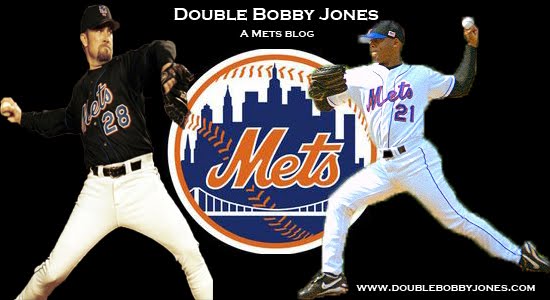Without further ado, I present my All-Decade Mets team:
Catcher: Mike Piazza
Not much of a question here. Was with the Mets 1998-2005 (though he was a 1B primarily one season). Put up good offensive numbers with the Mets for the half of the decade that he was here for.
First Baseman: Carlos Delgado
Delgado seems to be another no-brainer. From 2006-2009, he gave the Mets security at a position that had seen Mo Vaughn, Jason Phillips, and Doug Mientkiewicz, among others this decade. Put up good offensive numbers from 2006-2008, was unfortunately sidelined for most of the 2009 season.
Second Baseman: Luis Castillo
Very very tempting to give this to Edgardo Alfonzo. Alfonzo played for the Mets in the first 3 seasons of this decade, but struggled in 2001 and played at third base in 2002. Castillo, while having his share of misfortunes, put up solid production for two and a half seasons with the Mets (though his defense left a lot to be desired).
Shortstop: Jose Reyes
No explanation necessary.
Third Baseman: David Wright
Again, no explanation necessary.
Left fielder: Cliff Floyd
Floyd was the Mets main left fielder from 2003-2006. He put up very good numbers throughout but diminished greatly in 2006.
Center fielder: Carlos Beltran
A lot of these really don't need much explanation.
Right fielder: Shawn Green
Wow, this was a tough one, considering that the Mets have had a different main right fielder each year of the decade (Bell, Perez, Burnitz, Cedeno, Hidalgo, Diaz, Green, Church, Francoeur). Green came to the Mets in a trade with the Diamondbacks in August of 2006, played in the 2006 postseason with New York and was their main right fielder in the unfortunate 2007 season. I feel that he just edges out Ryan Church, as both played a season and change with the Mets.
Starting Pitcher: Al Leiter
Leiter played for the Mets from 1998-2004. In his time with the Mets this decade, he was very consistent, pitching at least 170 innings each season, with at least 10 wins, and an ERA under 4 each season.
Relief Pitcher: Pedro Feliciano
I nearly gave this one to John Franco or Aaron Heilman (yeah), but in the end I felt that Feliciano was the strongest non-closer reliever this decade for the Mets. In 367 appearances, he has a 3.31 ERA (128 ERA+). He led the league in games pitched in 2008-9. He averaged 8.3 strikeouts per 9 innings over this decade.
Closer: Billy Wagner
The other Mets closers this decade: Armando Benitez, Braden Looper, Luis Ayala/Aaron Heilman tandem, and a weak season of Francisco Rodriguez.
Yeah, it's Wagner.
Honorable Mentions at each position are as follows:
C Paul Lo Duca
1B Todd Zeile
2B Edgardo Alfonzo
SS Rey Ordonez
3B Robin Ventura
LF Benny Agbayani
CF Jay Payton
RF Ryan Church
SP Tom Glavine
RP Aaron Heilman
CL Armando Benitez
Astros Could Open Season With Six-Man Rotation
3 hours ago
